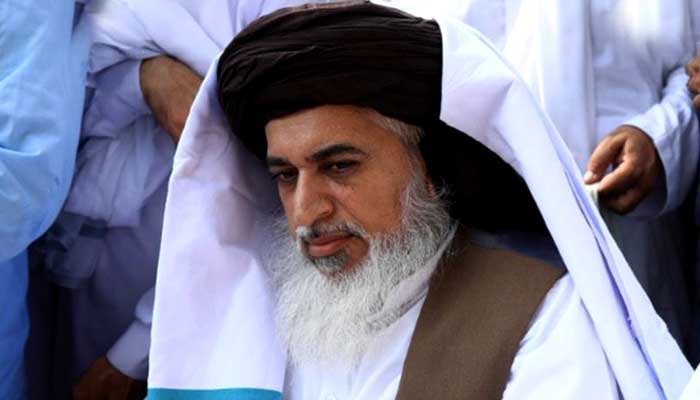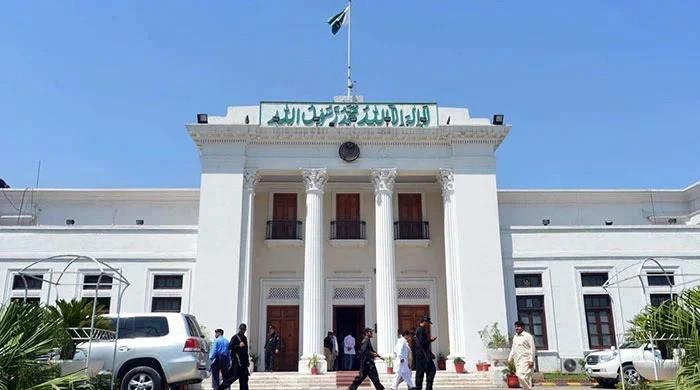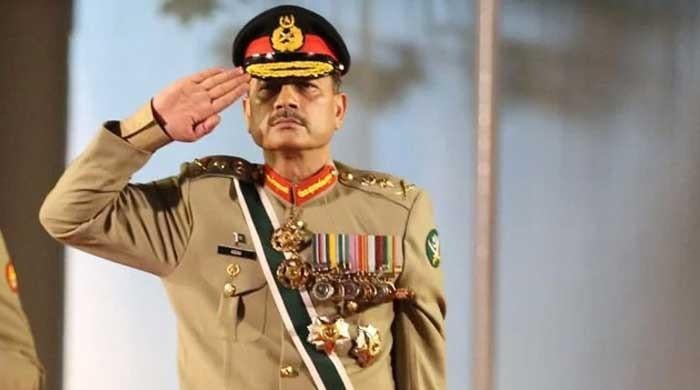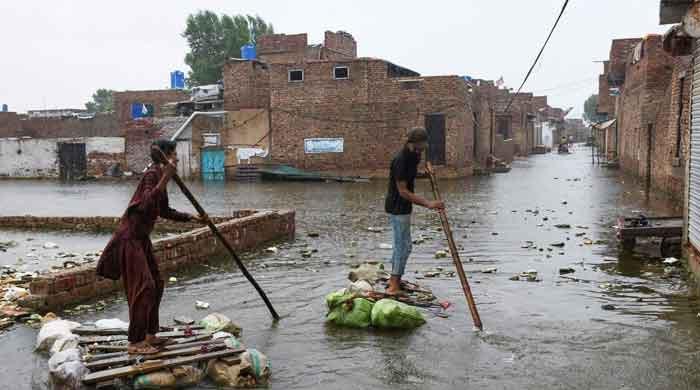Does the Tehreek-e-Labbaik have a political future without Khadim Hussain Rizvi?
Rizvi’s impact on the political arena cannot be uprooted that easily
December 11, 2020

A few months back, a follower of the religious cleric, Khadim Hussain Rizvi, approached me at the Karachi Press Club. He said Rizvi, leader of the right-wing political party, Tehreek-e-Labbaik Pakistan (TLP), wanted to meet me when he next visited Karachi.
“He [Rizvi] wants to share a few things with you,” I was told. I agreed to the meeting. But it never materialised, as Rizvi’s visit to the city was postponed.
On November 19, the 54-year-old firebrand cleric died, bringing an end to a brief but action-packed era, where his political party, the TLP, emerged from the unknown and jolted the 2018 national polls.
Last month in Lahore, a mammoth crowd gathered at the historic Minar-e-Pakistan for Rizvi’s funeral. As per some estimates, one million people were in attendance, which may be one of the largest gatherings at the monument in recent history.
His sudden death leaves many questions unanswered. Last month, when his supporters converged on the capital city to protest against France, there was talk about how Rizvi’s relationship with the powerful quarters had soured, post Imran Khan taking office.
His workers only agreed to leave after the government signed a four-point agreement with them. One of the demands was the expulsion of the French ambassador from Pakistan. This week, Prime Minister Imran Khan informed his cabinet that he would contact all Muslim countries to form a collective decision regarding future ties with France.
Whether one agrees with Rizvi’s style of politics or not, his legacy will continue to play an important role in the country’s political environment. His legacy has also left an impact on the Barelvi school of thought.
Khadim H. Rizvi’s rise in the political arena, while tumultuous, is also fascinating. Till 2015, he was a non-entity in politics. A year later, he took the country by storm.
Then, three years after his debut, in the 2018 general election, he gave Pakistan’s largest political parties a run for their money. In those polls, the TLP bagged 2.2 million votes and won two seats in the Sindh Assembly. Meanwhile, it severely dented the Muttahida Qaumi Movement (MQM)- Pakistan’s vote bank in Karachi and Hyderabad and the Pakistan Muslim League-N’s in Punjab.
One of the biggest upsets of the 2018 election was when a TLP candidate secured more votes than Pakistan Peoples Party Chairman Bilawal Bhutto-Zardari, in Lyari, Karachi.
For some, Rizvi rose to prominence due to his oratory skills. Even if that is true, he overplayed his cards after the 2018 polls.
A few months after the PTI came to power, the cleric announced nationwide rallies following the release of a Christian woman accused of blasphemy. Rizvi’s hard-hitting and provocative speeches against those who matter in the country led to a crackdown on his party. He was detained, while other senior leaders in his party announced an early retirement from politics.
The TLP activists in Karachi told me that around 800 of their workers had been arrested. Not only that, leaders of the TLP were not allowed to contest by-polls post 2018.
It was only when Rizvi agreed to some unknown conditions that he was released.
The right-wing cleric is also credited for giving a new direction to the Barelvi school of thought, as notable Barveli leaders in the 1970s and 1980s — such as Maulana Shah Ahmad Noorani Siddiqui and Maulana Abdus Sattar Niazi of Jamiat Ulema-e-Pakistan — had a very different approach to politics.
Maulana Noorani was a forceful voice and played one of the leading roles in the making of the 1973 Constitution, as well as during the 1977 Pakistan National Alliance movement against former prime minister Zulfiqar Ali Bhutto.
Both Noorani and Niazi were excellent speakers. Niazi later parted ways with Noorani and formed his own faction of the JUP.
The split damaged the party. Still, the JUP’s role in Pakistan’s history is significant. During the first Afghan war, which saw the rise of religious extremism, Noorani and the JUP did not support the Afghan jihad. The JUP also did not join the Movement for the Restoration of Democracy (MRD) against General Zia-ul-Haq, but Noorani continued to demand the release of MRD leaders and workers.
In fact, religious parties which had once dominated the political scene in Karachi, received their first set back in 1985. Their key leaders lost the non-party based election held that year.
The JUP only managed to climb back to prominence in 2002, when it won seven seats from Karachi and one from Hyderabad from the platform of Muttahida Majlis-e-Amal. In the later years, the JUP was replaced by the Sunni Tehreek.
Some argue that the TLP actually filled the vacuum left after frontline leaders of the JUP and Sunni Tehreek were killed in a suicide attack a few years back at Nishtar Park in Karachi.
But for others, Rizvi’s rise was pushed by the powerful quarters to cut into the vote bank of the PML-N and provide the PTI a winning chance in 2018.
Now with Rizvi laid to rest, it will be interesting to see how his party survives without him. Can it still hurt the chances of mainstream political parties winning the local government elections?
For now, Rizvi’s son has been named as his successor. But how successful will he be in carrying forward his father’s legacy?
Regardless, one thing is for sure: Rizvi’s impact on the political arena cannot be uprooted that easily. Audio cassettes of his speeches continue to sell in record numbers after his death.
What remains to be seen is whether the TLP will continue to play a spoiler in national polls, or will it now, post-Rizvi, finally find its footing in the political arena?
Abbas is a senior columnist and analyst of the GEO, The News and Jang. He tweets @MazharAbbasGEO











